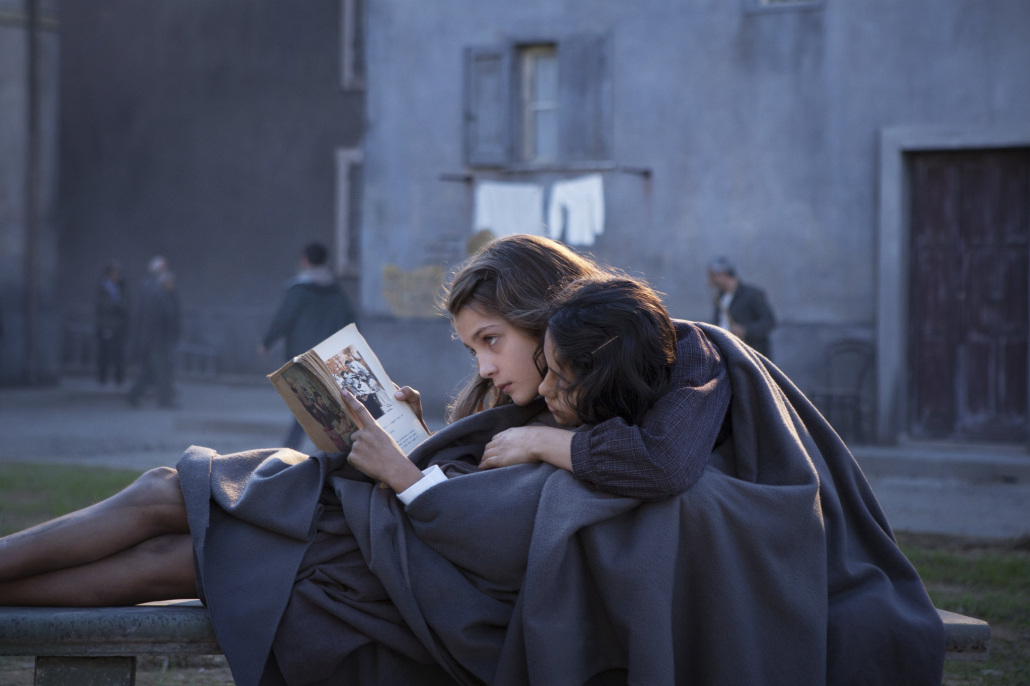After two years, ‘My Brilliant Friend’ is still radiant

Lenu is no longer a child. The girl who adorned the pages of Elena Ferrante’s first two books in the “Neapolitan quartet” and the first two seasons of HBO’s Italian-language drama “My Brilliant Friend” is now a published author and fiancé.
The show’s third season, which premiered on Monday night after a two-year wait, forwent some of its rustic luster for modern shine. But Ferrante’s melancholia beams through the screen and leaves the viewer with a beautiful and aching sense of loss.
The first of Ferrante’s “The Neapolitan Novels” was published in 2012 and shares a name with its TV adaptation. The show, filmed in Italy, has followed the same timeline as the novels, with each season dedicated to a book. Ferrante has a writing credit on the show and the lyrical reveries of her characters translate perfectly to the screen.
In the first season, the protagonist, Lenu (Margherita Mazzucco), is a little girl living in a Neapolitan slum in the 1950s and 60s. A clever girl, Lenu tries to make sense of the despair and disarray around her. She and her best friend, Lila (Gaia Girace), bury themselves in the world of books to escape the violence that surrounds them. In the second season, Lenu and Lila’s lives diverge. Lenu climbs her way out of poverty, using her intelligence and educational opportunities while Lila descends into an arduous life as a teenage bride and young mother.
In the first episode of season three, Lenu, now in her 20s, is far from the dust and grime of her childhood apartment complex. The show opens on a book reading in Milan, where she signs copies of her first novel. Also at the reading is Nino, her childhood crush and a character who weaves in and out of the narrative over the seasons like a wrecking ball, destroying everything in his path. When her fiancé appears after the reading, Lenu is sullen and ambivalent to the adoration of her future husband as she has once again become obsessed with Nino.
While Lenu has always been a reserved person, living so vividly in her head — the show is elegantly narrated through the voice of an older Lenu — her coolness becomes a little tiresome and somewhat unbelievable. She seems incapable of hiding her feelings but also unable to express them. The dispassion she shows to her family, friends and fiancé feels overwrought and misplaced. It is also in stark contrast to the show’s setting, score and script, which all ooze passion and urgency.
In a later scene in the episode, Lenu accidentally attends a student protest at a university in Milan. There she becomes intrigued by a young woman with a baby. This woman, not so subtly, reminds Lenu of Lila, who has a young son. When the young mother and Lenu end up at a house party together, Lenu comforts the mother and her crying child. She takes the child from the mother and tenderly rocks the baby to sleep.
Margherita Mazzucco, who plays Lenu in the second and third seasons, is only 18 years old. As she holds the baby, she appears uncomfortable. The proportions between her and the baby are unsettling. Similarly, Lenu’s unemotional facade would perhaps appear more natural if she were played by an older actor. As the third season reaches into Lenu’s 20s, Mazzucco will play someone almost ten years older than herself. Excellent in the second season, time will tell if Mazzucco can play this increasingly sophisticated role.
Lila, the second pillar of this series, is absent from this first episode, but the title sequence promises that she will appear at some point. Her absence further symbolizes the separate paths that she and Lenu have taken. While Lenu writes and studies — and engages in glamorous activities — Lila works relentlessly in an oppressive sausage factory.
While the earlier seasons of the show had the tone and texture of an old video camera — incidentally, the title sequence is filmed on an old camera — this newest episode is shiny and slightly metallic. For fans of the show, this might be a little surprising and, perhaps, unwanted. Yet, the scenes set back in Naples have the same quality of homely squalor from the first two seasons.
The show continues to endure because of Ferrante. Her words, her characters, her narrative are what make this a worthy watch. Without spoiling the story, the last seconds of the episode reveal a chilling twist in the story, breaking hearts before the screen cuts to black. The first episode promises a delightful third season to come.

